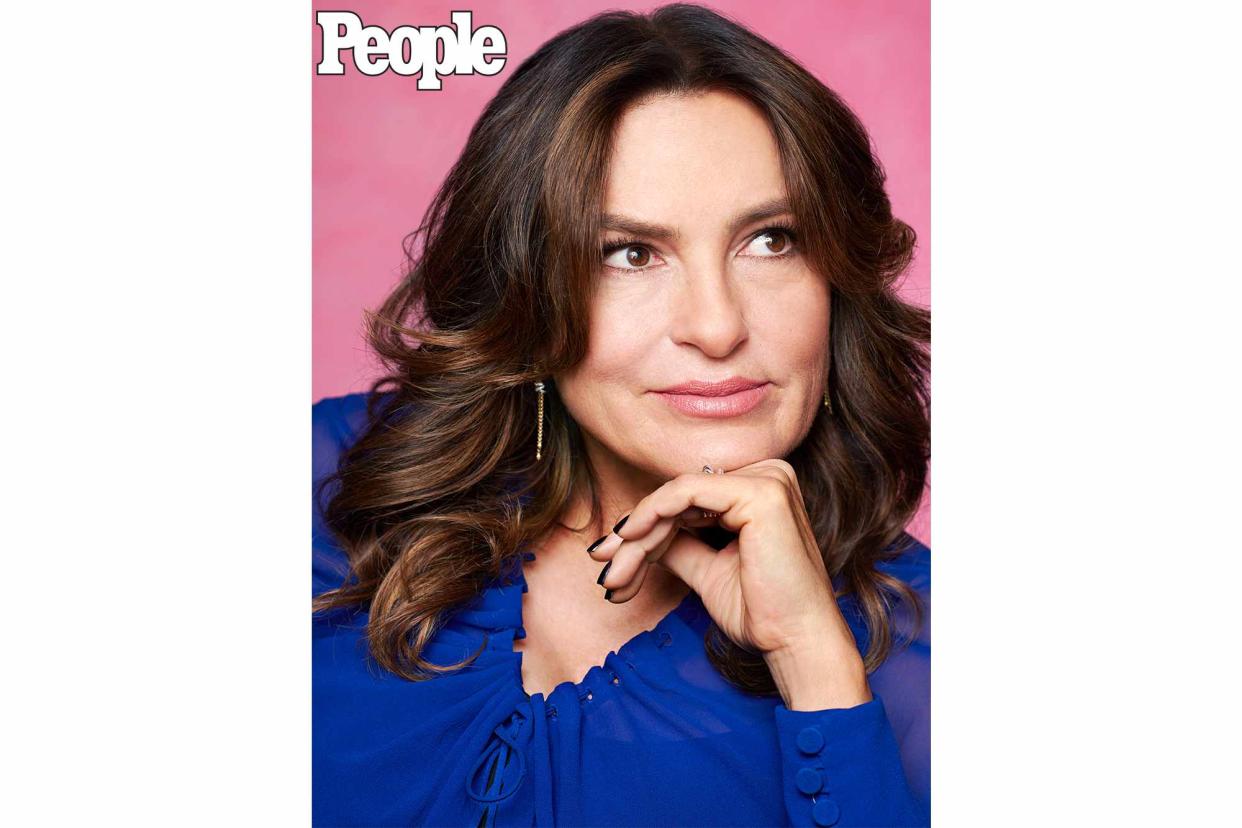Mariska Hargitay Shares Her Experience in Her Own Words: A Rape. A Reckoning. A Renewal (Exclusive)
The 'Law & Order: SVU' star writes a first-person essay about her experience as part of this week's PEOPLE cover story

In this week's PEOPLE cover story, Law & Order: SVU star Mariska Hargitay shares her experience — in her own words.
A man raped me in my thirties.
It wasn’t sexual at all. It was dominance and control. Overpowering control.
He was a friend. Then he wasn’t. I tried all the ways I knew to get out of it. I tried to make jokes, to be charming, to set a boundary, to reason, to say no. He grabbed me by the arms and held me down. I was terrified. I didn’t want it to escalate to violence. I now know it was already sexual violence, but I was afraid he would become physically violent. I went into freeze mode, a common trauma response when there is no option to escape. I checked out of my body.
I couldn’t process it. I couldn’t believe that it happened. That it could happen. So I cut it out. I removed it from my narrative. I now have so much empathy for the part of me that made that choice because that part got me through it. It never happened. Now I honor that part: I did what I had to do to survive.
For a long time, I focused on creating a foundation to help survivors of abuse and sexual violence heal. I was building Joyful Heart on the outside so I could do the work on the inside. I think I also needed to see what healing could look like. I look back on speeches where I said, “I’m not a survivor.” I wasn’t being untruthful; it wasn’t how I thought of myself.
I occasionally had talked about what this person did to me, but I minimized it. My husband Peter remembers me saying, “I mean, it wasn’t rape.” Then things started shifting in me, and I began talking about it more in earnest with those closest to me. They were the first ones to call it what it was. They were gentle and kind and careful, but their naming it was important. It wasn’t a confrontation, like “You need to deal with what happened,” it was more like looking at it in the light of day: “Here is what it means when someone rapes another person, so on your own time, it could be useful to compare that to what was done to you.” Then I had my own realization. My own reckoning.
Now I’m able to see clearly what was done to me. I understand the neurobiology of trauma. Trauma fractures our mind and our memory. The way a mirror fractures.
I’ve navigated a lot of unwanted advances. This was not for me to navigate. This was beyond that. That’s why I’ve talked so much about acquaintance rape, because many people still think of rape as a man jumping out of the bushes. This was a friend who made a unilateral decision.
Survivors who’ve watched the show have told me I’ve helped them and given them strength. But they’re the ones who’ve been a source of strength for me. They’ve experienced darkness and cruelty, an utter disregard for another human being, and they’ve done what they needed to survive. For some, that means making Olivia Benson a big part of their lives—which is an honor beyond measure—for others, it means building a foundation. We’re strong, and we find a way through.
I said for a long time that my hope was for people to be able to talk about sexual assault the same way they now talk about cancer. Tell someone you’ve survived cancer, and you’re celebrated. I want the same response for sexual assault survivors. I want no shame with the victim. The shame of the act belongs with the perpetrator: they’re the ones who committed the heinous, shameful act.
My hope has also changed, however. And it is less a hope than a renewed determination. I want this violence to end. Sexual violence persists not because of something unchangeable in our human condition, it exists because power structures are in place that allow it to happen. Those power structures are so pervasive that no one is immune from them. They breed thoughts like “I must have done something to cause this.” And our society agrees: “Yes, you brought this upon yourself.” That is false and it must change. The violence ends when the power structure changes.
As for justice, it’s important to know that it may look different for each survivor. For me, I want an acknowledgment and an apology. I’m sorry for what I did to you. I raped you. I am without excuse. That is a beginning. I don’t know what is on the other side of it, and it won’t undo what happened, but I know it plays a role in how I will work through this.
This is a painful part of my story. The experience was horrible. But it doesn’t come close to defining me, in the same way that no other single part of my story defines me. No single part of anyone’s story defines them.
I’m turning 60, and I’m so deeply grateful for where I am. I’m renewed and I’m flooded with compassion for all of us who have suffered. And I’m still proudly in process.
For more on Mariska Hargitay, pick up the latest issue of PEOPLE, on newsstands Friday.
For more People news, make sure to sign up for our newsletter!
Read the original article on People.
